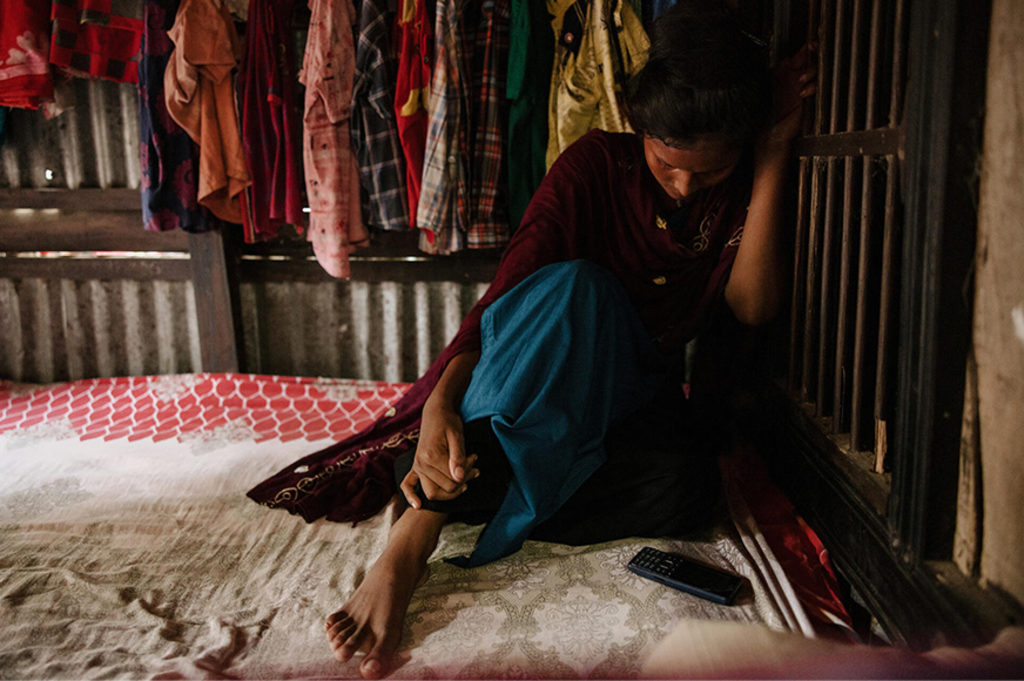THE crowded shopping mall was the perfect cover. As people made their way into the food court for the day’s lunch break, Priya, 37, sat at one of the tables, her shoulders tense, her eyes untrusting, and her hands wrapped tightly around her cup.
“Look at me,” she said.
“I know my identity won’t be revealed, but I am anxious. Openly talking about this would make my colleagues and relatives think I’ve lost my mind.”
This was menopause.
A heavy burden to bear
Her nervous demeanour and recurring reminder that she would only be interviewed if her identity was kept under wraps or anonymous is a common reaction observed by this newspaper in the course of pursuing interviews with women about perimenopause and menopause.
The stigma is real.
A senior bank worker, Priya sought assurance once more and when she was finally convinced, she relaxed then began talking.
“This is still very hush-hush despite considering ourselves an educated society – there is a lot of work to be done if we want our daughters to be understood in future.
“I struggled a lot before making some lifestyle changes,” she said of her experience with perimenopause.
“The pressure we work under, the demand from our seniors becomes a heavy burden on us during this phase of our life.
“I am not saying we can’t perform, but a little bit of understanding and relaxing of our deadlines would make a huge difference.”
She said her colleagues aged between 35 and 48 were also experiencing menopause, with many already experiencing symptoms like brain fog, dry skin, hair loss, hot flashes, joint pains, mood swings, fatigue, irregular and heavy periods.
“For me I started snapping at my husband and children. I suffered extreme exhaustion, pain in my joints which I thought was because of the cold environment in the workplace, and I started getting anxious leading to short breath.”
Curse, karma and witchcraft
Asked why women, despite being educated, were not openly talking about menopause, she said it was because of stigma.
“There is a fear of being mocked, called mad. A lot of religious and cultural norms also prevent women from discussing issues such as menstruation and menopause.”
Priya says in Indian societies, most medical problems were termed as curses, karma or witchcraft, further entrenching the stigma associated with health issues.
“So these fears isolate us further and we suffer alone. At work, we will be misunderstood too if we open about it.
“Imagine if you are in the middle of a meeting and suddenly you forget what you were saying or get nervous and your heart starts to beat fast.
“You can’t say give me some time, I am going through menopause. You would be labelled mad or strange if you did.”
Families under duress
Priya said while women facing menopause tried to keep it together at work, their families suffered the most.
“For a few months, my family didn’t know how to behave around me. It was a difficult time, but I thank God when my husband suggested I visit our family doctor and I obliged.”
Following a thorough check-up and questions about her family history, the doctor concluded she was experiencing the early onset of menopause, also known as perimenopause.
“This was the first time I heard the term perimenopause. All these years I thought menopause was something that only affected women who were 50 or older.
“I was prescribed supplements which are available over the counter and after few months, I switched to herbal products and supplements.
“I changed my diet and stopped taking coffee, tea, sugar, soft drinks or fast food and my husband exercises with me now.
Priya said she sympathised with colleagues who were misunderstood at work and home.
“This is a very vulnerable phase in our life and not being understood at work or home adds to our stress.”
A husband’s prompting
Towards the end of the interview, her husband emerged and shared his story.
“The sudden change in her was very unnerving and I thought that she was having an anxiety attack or a nervous breakdown,” he said.
“She would snap at the children or scream at them over the smallest things. I noticed how they would become tense when their mother was around.”
He said he was relieved when she agreed to see a doctor at his prompting.
“Going with her and learning firsthand what she was going through was eye-opening and shocking.”
He said many times men tried to avoid going home when their wives were moody, but it was important for them to pay attention to the changes in their wives and make the effort to understand it.
“We seek comfort with friends; many get involved with other women or make excuses and stay back at work to avoid going home.
“This is not good. Men should support their wives and give her the help she needs to get through this transition.
“I am glad I took this initiative. My children and I have become understanding and loving towards her and this has bonded my family in a different way.
“I am confident that my daughter has learnt a lot about menopause too in this process.”



